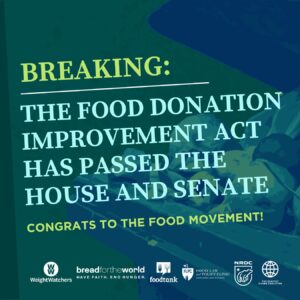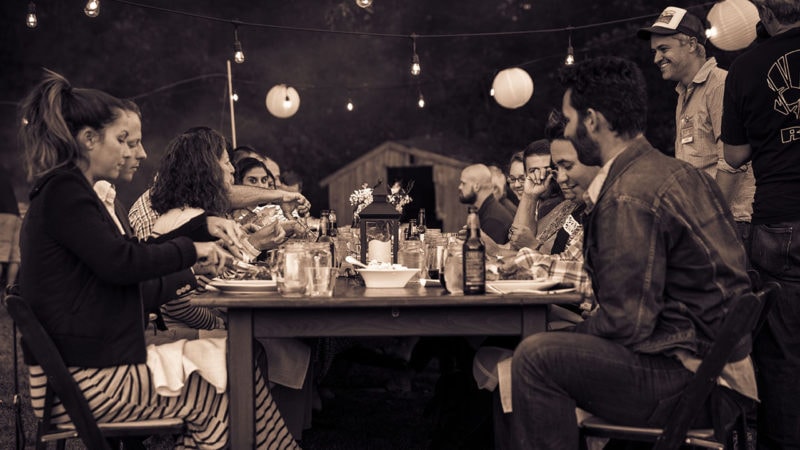Last Updated on January 25, 2023
No matter the season, gathering with friends and family over good food and conversation is what keeps us inspired here at ButcherBox. It’s why we love sharing recipes, kitchen tips & tricks, and stories on the traditions that keep us coming back to shared tables together. Yet not all Americans can enjoy the simple act of connecting over food because it is scarce. In 2021, 1 in 10 Americans lived in households that lacked access to an affordable, nutritious diet. Rural Americans, families with children, and Black and Latinx households can face even higher barriers to providing sufficient food for their families.
Addressing food insecurity in America is a complex problem; one that no individual, organization, or government agency can solve alone. However, at ButcherBox we’re committed to being part of the solution to alleviate hunger.
Meeting Immediate Needs
One of the most important actions taken to meet the needs of hungry people in this country is to provide them with food. It sounds simple, but the act of sourcing and distributing food relies on vast distribution networks and thousands of local non-profits, food banks, and volunteers to meet people where they are. Large organizations such as Feeding America, aggregate surplus food from large corporations and other donors to close nutritional gaps.
Meat and seafood are often hard to come by in these food bank networks, which is why each year we donate thousands of pounds of excess food to communities surrounding our distribution centers as well as across the country. In 2022 alone, nearly 70,000 pounds of meat and seafood from ButcherBox went to our food bank partners. Our experience working with food bank partners over the last five years, like Feeding America Eastern Wisconsin, opened our eyes to how challenging it can be for food companies, like us, to donate excess food.
In 1996 the Bill Emerson Act – or “Good Samaritan Act” – was established to provide liability protection for entities interested in donating excess food. While the Act has enabled many organizations, like us, to donate surplus food regularly, many grocery stores and food service companies still opt to throw away good, quality food, due to vague language, confusing food date labels, and liability concerns associated with a donation. In 2019, the U.S. wasted about 54 million tons of food – which equates to about one pound of waste per American per day. Unfortunately, 40% of that food waste was attributed to grocery stores and food service organizations – two of the entities most impacted by the vague language in the Act. 
To encourage more food companies to donate surplus food, a group of food organizations and non-profits joined together to advocate for an update to the Bill Emerson Act. This group, the Healthy Living Coalition, which was comprised of companies like ButcherBox, WeightWatchers, GrubHub, Panera Bread, and more, worked with Massachusetts Congressman, Jim McGovern, to introduce a new version of the bill called the Food Donation Improvement Act. This new bill was aimed at increasing clarity of the legal protections in the original act and extending the scope of protected donors. As an example, during the height of the pandemic, organizations like schools and restaurants that were critical to serving the food needs of thousands of Americans, were not protected by the current language in the bill from a food safety and quality standpoint. The new language now legally protects these types of organizations and enables them to donate food directly to those in need.
Over the last year, ButcherBox signed on to an open letter in support of the new act and held meetings with the staff of five Senators and Congressional Representatives in support of the Coalition’s advocacy efforts, and those efforts paid off. This December, both the House and Senate passed the bill, and it’s now headed to President Biden’s desk for signature.

We applaud the hard work of the Healthy Living Coalition to increase the feasibility of food donations, which will feed hungry Americans and avoid unnecessary food waste. As a company, we’ll continue to speak up for solutions we believe in and look forward to our continued participation in the Healthy Living Coalition.
Addressing Root Causes
In addition to meeting the urgent needs of hungry communities across the country, solutions to America’s food insecurity problem must also address the root causes of food insecurity – notably economic and racial inequalities that lead to poverty. An example of an approach that focuses on root causes is the Fueling the Future program in Muscatine, Iowa that ButcherBox was thrilled to begin supporting in 2022.
Fueling the Future starts by meeting the immediate hunger needs of families, by providing elementary-aged children with a backpack of food subsidies. Then, they work with the children’s parents or guardians to support emergent family issues – such as employment, skill attainment or health crises. Once immediate family issues have been addressed, the program enrolls the adults in paid training programs and subsequently connects them with employment opportunities. Models such as this, that view hunger as a symptom of larger struggles, and work to support long-term family stability are what excite us about tackling hunger in America.
As a company committed to bringing people together over delicious meals, we recognize that this privilege is not accessible to all. We remain committed to supporting the work of organizations like Fueling the Future and partners such as the Healthy Living Coalition and Farm Share, to advance both the short- and long-term solutions to hunger in America.
Kelly Hilovsky is the Senior Manager of Social and Environmental Responsibility at ButcherBox. She has an MPH from Johns Hopkins and is committed to addressing complex social problems through the lenses of public health and food justice.



